On April 18, Long Beach City Council approved a measure to repeal a local campaign finance law which barred elected officials from contributing officeholder funds to other candidates running for elective office. The restriction risked being challenged as unconstitutional and […]
 On April 18, Long Beach City Council approved a measure to repeal a local campaign finance law which barred elected officials from contributing officeholder funds to other candidates running for elective office.
On April 18, Long Beach City Council approved a measure to repeal a local campaign finance law which barred elected officials from contributing officeholder funds to other candidates running for elective office.
The restriction risked being challenged as unconstitutional and the repeal brings city law more in line with current state rules.
The City Council voted 5-3 in favor of the repeal.
April 18, 2017 •
California Lawmakers Introduce Bill to Move Up Presidential Primary
Lawmakers are considering a bill to move up California’s presidential primary election date. Senate Bill 568 seeks to move the presidential primary date from the first Tuesday in June to the third Tuesday in March. The move is aimed at […]
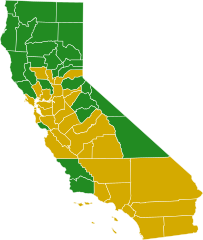 Lawmakers are considering a bill to move up California’s presidential primary election date.
Lawmakers are considering a bill to move up California’s presidential primary election date.
Senate Bill 568 seeks to move the presidential primary date from the first Tuesday in June to the third Tuesday in March.
The move is aimed at getting presidential candidates to prioritize issues important to Californians during the primary process.
Senate Bill 568 would also move up primary elections in statewide office and legislative races to help eliminate potential voter confusion from multiple election dates.
On March 16, California’s Fair Political Practices Commission (FPPC) held a hearing on the possible adoption of a regulation to change the test for when a candidate controls a political committee. Leaders of the Democratic and Republican caucuses of the […]
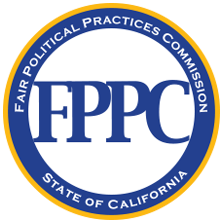 On March 16, California’s Fair Political Practices Commission (FPPC) held a hearing on the possible adoption of a regulation to change the test for when a candidate controls a political committee.
On March 16, California’s Fair Political Practices Commission (FPPC) held a hearing on the possible adoption of a regulation to change the test for when a candidate controls a political committee.
Leaders of the Democratic and Republican caucuses of the state Senate and Assembly oppose the proposed regulation as creating a vague and uncertain test for whether a committee is controlled by a candidate.
One of the most contested features of the regulation is a provision that would determine a candidate controls a committee if the candidate raises an “extensive” amount of money for the committee.
FPPC staff decided to take legislators’ concerns into consideration, delaying action on the proposed regulation until next month to allow time for changes.
January 27, 2017 •
Special Election Dates Set for California’s 34th Congressional District
Gov. Jerry Brown announced special election dates to replace 34th Congressional District Rep. Xavier Becerra’s vacant seat after he was appointed to be the attorney general of California. The primary election is set for April 4, 2017. If no candidate […]
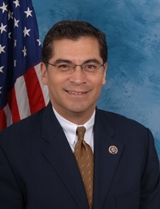 Gov. Jerry Brown announced special election dates to replace 34th Congressional District Rep. Xavier Becerra’s vacant seat after he was appointed to be the attorney general of California.
Gov. Jerry Brown announced special election dates to replace 34th Congressional District Rep. Xavier Becerra’s vacant seat after he was appointed to be the attorney general of California.
The primary election is set for April 4, 2017. If no candidate receives more than 50% of the vote, a general election will be held June 6, 2017.
The race to fill the vacancy will be crowded, with 18 candidates already publicly announcing their intent to run for the position.
January 17, 2017 •
Los Angeles Addresses Political Contributions from Real Estate Developers
Five City Council members recently asked the Los Angeles Ethics Commission to address the issue of real estate developers making political contributions. Developers can appear to be benefiting when elected officials they’ve supported grant them land-use perks such as zoning […]
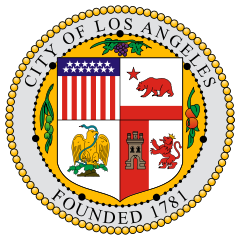 Five City Council members recently asked the Los Angeles Ethics Commission to address the issue of real estate developers making political contributions.
Five City Council members recently asked the Los Angeles Ethics Commission to address the issue of real estate developers making political contributions.
Developers can appear to be benefiting when elected officials they’ve supported grant them land-use perks such as zoning exemptions.
This campaign finance reform initiative focuses on restricting donations specifically from developers, contractors, and subcontractors whose projects are being reviewed by the city.
December 15, 2016 •
Legal Challenge Filed Against California’s New Law on Publicly Funded Campaigns
On Monday, the Howard Jarvis Taxpayers Association and retired State Senator and Judge Quentin L. Kopp filed a lawsuit in the Sacramento Superior Court seeking to invalidate Senate Bill 1107. SB 1107 was passed this fall and allows any municipality […]
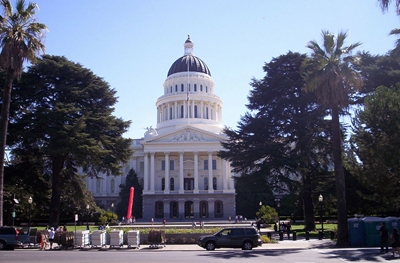 On Monday, the Howard Jarvis Taxpayers Association and retired State Senator and Judge Quentin L. Kopp filed a lawsuit in the Sacramento Superior Court seeking to invalidate Senate Bill 1107. SB 1107 was passed this fall and allows any municipality the option to create systems for publicly funded campaigns.
On Monday, the Howard Jarvis Taxpayers Association and retired State Senator and Judge Quentin L. Kopp filed a lawsuit in the Sacramento Superior Court seeking to invalidate Senate Bill 1107. SB 1107 was passed this fall and allows any municipality the option to create systems for publicly funded campaigns.
Prior to SB 1107, only six charter cities were allowed to offer limited public funds to match small campaign donations. The suit requests an injunction to stop the new provisions from taking effect on January 1, 2017. The plaintiffs are also requesting SB 1107 be ruled invalid and sent to voters on a statewide ballot.
December 2, 2016 •
Special Election Likely for California’s 34th Congressional District
Gov. Jerry Brown has selected 34th Congressional District Rep. Xavier Becerra to be the next attorney general of California. The attorney general position became available when Kamala Harris was elected to the U.S. Senate in the November election. State law […]
 Gov. Jerry Brown has selected 34th Congressional District Rep. Xavier Becerra to be the next attorney general of California.
Gov. Jerry Brown has selected 34th Congressional District Rep. Xavier Becerra to be the next attorney general of California.
The attorney general position became available when Kamala Harris was elected to the U.S. Senate in the November election.
State law requires the governor to arrange a special election date within two weeks of Becerra leaving his congressional post.
November 22, 2016 •
FPPC Approves Amendments to Increase Gift and Campaign Contribution Limits
On Nov. 17, California’s Fair Political Practices Commission (FPPC) approved regulations to make biennial cost of living adjustments to campaign contribution and gift limits that will apply from Jan. 1, 2017, through Dec. 31, 2018. The newly amended regulations change […]
 On Nov. 17, California’s Fair Political Practices Commission (FPPC) approved regulations to make biennial cost of living adjustments to campaign contribution and gift limits that will apply from Jan. 1, 2017, through Dec. 31, 2018.
On Nov. 17, California’s Fair Political Practices Commission (FPPC) approved regulations to make biennial cost of living adjustments to campaign contribution and gift limits that will apply from Jan. 1, 2017, through Dec. 31, 2018.
The newly amended regulations change the gift limit from $460 to $470 and makes increases to campaign contribution limits.
November 14, 2016 •
Berkeley, CA Passes Ballot Measure to Create Public Campaign Finance System
Berkeley voters approved a measure to create a voluntary system of public financing for city elections. Measure X1 does not increase taxes, but amends the City Charter and Municipal Code to allocate $4 per Berkeley resident from the General Fund […]
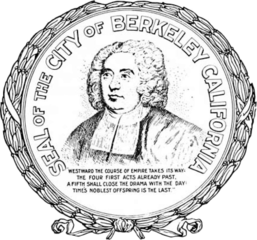 Berkeley voters approved a measure to create a voluntary system of public financing for city elections. Measure X1 does not increase taxes, but amends the City Charter and Municipal Code to allocate $4 per Berkeley resident from the General Fund to a new Fair Elections Fund.
Berkeley voters approved a measure to create a voluntary system of public financing for city elections. Measure X1 does not increase taxes, but amends the City Charter and Municipal Code to allocate $4 per Berkeley resident from the General Fund to a new Fair Elections Fund.
To be eligible for public financing, a candidate must agree to only accept individual contributions of $50 or less from Berkeley residents.
Measure X1 was made possible by the recent passage of SB 1107, which allows any state or local government in California to provide for the public funding of elections.
November 9, 2016 •
San Francisco Passes Ballot Issue Restricting Gifts and Contributions from Lobbyists
Voters in San Francisco overwhelmingly passed a city ballot initiative restricting lobbyist gifts and campaign contributions. Local Ballot Measure T, passed with over 87 percent support, prohibits lobbyists from making any gift to a city officer, regardless of value, prohibits […]
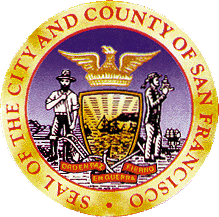 Voters in San Francisco overwhelmingly passed a city ballot initiative restricting lobbyist gifts and campaign contributions.
Voters in San Francisco overwhelmingly passed a city ballot initiative restricting lobbyist gifts and campaign contributions.
Local Ballot Measure T, passed with over 87 percent support, prohibits lobbyists from making any gift to a city officer, regardless of value, prohibits lobbyists from using a third-party to circumvent this restriction, and prohibits city officers from accepting or soliciting such gifts. The gift restriction specifically includes any gift of travel. The measure defines “Gift of travel” as payment, advance, or reimbursement for travel, including transportation, lodging, and food and refreshments connected with the travel.
The measure also requires lobbyists to identify which city agencies they intend to influence and imposes a duty on local lobbyists to amend and update their registration information and monthly reports within five days of any changed circumstances.
The initiative also prohibits a lobbyist from making contributions to or bundling contributions for city elected officials or candidates for city elective offices if the lobbyist had been registered to lobby the officials’ agencies within 90 days of the date any contribution is made.
The changes to the city’s lobbying laws becomes effective January 1, 2018.
November 9, 2016 •
CA Voters Reject Prescription Drug Price Proposition 61
On November 8, voters in California rejected a proposition requiring the state not pay for any prescription drug from a drug manufacturer at any price over the lowest price paid for the same drug by the United States Department of […]
 On November 8, voters in California rejected a proposition requiring the state not pay for any prescription drug from a drug manufacturer at any price over the lowest price paid for the same drug by the United States Department of Veterans Affairs (VA). With over 96.6 percent of the precincts reporting, 53.7 percent voted against the proposition and 46.3 percent voted for it, according to the California Secretary of State’s office.
On November 8, voters in California rejected a proposition requiring the state not pay for any prescription drug from a drug manufacturer at any price over the lowest price paid for the same drug by the United States Department of Veterans Affairs (VA). With over 96.6 percent of the precincts reporting, 53.7 percent voted against the proposition and 46.3 percent voted for it, according to the California Secretary of State’s office.
Proposition 61, which would have created The California Drug Price Relief Act, applied to any program where the state agency is the ultimate payer for a prescription drug, even if the state agency does not itself buy the drug. The proposition exempted purchases of prescription drugs under managed care programs funded through Medi-Cal, which offers comprehensive health coverage to the state’s low-income residents. The managed care program serves approximately 75 percent of Medi-Cal enrollees. The proposition only applied to the fee-for-service system of Medi-Cal covering the remaining 25 percent of enrollees.
Opponents of the proposition argued drug manufacturers could decline to offer the state certain drugs sold to the VA or increase drug prices for the VA to reduce any decrease to profits.
November 9, 2016 •
California Proposition 59 to Overturn Citizens United Passes
On November 8, California voters approved a proposition directing state elected officials overturn Citizens United. Overturn of Citizens United Act Advisory Question (Proposition 59) asked voters to affirm state elected officials should use all constitutional authority, including, but not limited […]
 On November 8, California voters approved a proposition directing state elected officials overturn Citizens United.
On November 8, California voters approved a proposition directing state elected officials overturn Citizens United.
Overturn of Citizens United Act Advisory Question (Proposition 59) asked voters to affirm state elected officials should use all constitutional authority, including, but not limited to, proposing and ratifying one or more amendments to the U.S. Constitution to overturn Citizens United and other applicable judicial precedents to allow the full regulation or limitation of campaign spending. The proposition also directs the officials to act to make clear corporations should not have the same constitutional rights as human beings.
As of 5:00 a.m., with over 90 percent of the precincts reporting, the proposition passed 52.4 percent to 47.6 percent, according to the California Secretary of State’s office.
October 25, 2016 •
Berkeley, CA Voters to Consider Public Campaign Financing Measure
On Election Day, Berkeley voters will consider a measure to create a voluntary system of public financing for city elections. Measure X1 seeks to allow candidates agreeing to limit their acceptance of contributions to $50 or less to qualify for […]

On Election Day, Berkeley voters will consider a measure to create a voluntary system of public financing for city elections.
Measure X1 seeks to allow candidates agreeing to limit their acceptance of contributions to $50 or less to qualify for matching funds from the city in the amount of $6 for every $1 raised from Berkeley residents.
Measure X1 was made possible by the recent passage of SB 1107, which allows any state or local government in California to provide for the public funding of elections.
October 21, 2016 •
FPPC Approves Amendment Affecting Nonprofit Reporting
On October 20, California’s Fair Political Practices Commission (FPPC) approved a regulation to provide further direction on how nonprofit organizations should report donor names relating to travel payments. The regulation creates Form 807 for the purpose of disclosing donor […]

On October 20, California’s Fair Political Practices Commission (FPPC) approved a regulation to provide further direction on how nonprofit organizations should report donor names relating to travel payments.
The regulation creates Form 807 for the purpose of disclosing donor information of nonprofits that regularly organize and host travel for elected officials. The regulation will become effective 30 days after the FPPC files it with the Office of the Secretary of State.
State and Federal Communications, Inc. provides research and consulting services for government relations professionals on lobbying laws, procurement lobbying laws, political contribution laws in the United States and Canada. Learn more by visiting stateandfed.com.

